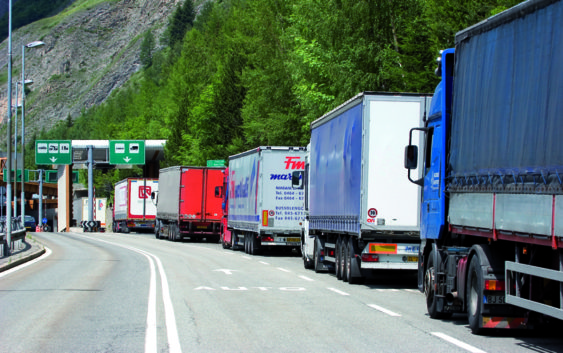Brussels – Italian Transport Minister Matteo Salvini went from words to action and, as promised, sent a letter to Brussels asking to open infringement proceedings against Austria for the Brenner Affair. “We will fully play our role,” the European Commission said. After months, this closes a chapter, not without friction between the League secretary and Brussels (in September, Salvini directly attacked Ursula von der Leyen, accusing her of “pontificating at Italy’s expense,” welcoming migrants in Lampedusa and “securing the Brenner border) and opening a new one, provided for in the Article 259 of the Treaty on the Functioning of the European Union (TFUE).
The rule invoked by Salvini provides that “any of the Member States may bring an action before the Court of Justice of the European Union when it considers that another Member State has failed to fulfill one of its obligations under the Treaties.” But before asking the Luxembourg Court, States must turn to the European Commission. That’s where we are now. At this point, Rome and Vienna will be able to present their arguments, in writing and orally, to the EU executive, which has three months to issue a reasoned opinion on the matter. If the Commission does not make its case within that time, the Italian government can go directly to the Luxembourg courts. But the European Commission has every intention of “fully playing its role in accordance with that article,” spokesman Adalbert Jahnz said today (Feb. 15), who nevertheless wanted to respond once again to the League secretary’s accusations of a “wait-and-see” attitude.
“With regard to the mediation efforts undertaken, I can only recall that the Commission has organized six rounds of meetings, the last one last spring, which did not result in any agreement,” Jahnz said. The situation has been tense since the Austrian government adopted new restrictions on the movement of heavy vehicles at the Brenner Pass, on which many of Italy’s exports to Germany pass, over 50 million tons of goods per year. From the second half of 2023, the number of southbound trucks from Germany has been reduced to a maximum of 300 vehicles per hour. “Freedom of movement is guaranteed by the Treaties, but it does not imply an obligation to transport goods by road: we have capacity on rail, please use it,” Austrian Transport Minister Leonore Gewessler said. “The restrictions were introduced by Austria for reasons that on paper were of environmental nature, but the environment has nothing to do with it,” Salvini shot back. “It is simply unfair Austrian competition against Italian, German. and continental European entrepreneurs and hauliers.”
English version by the Translation Service of Withub



